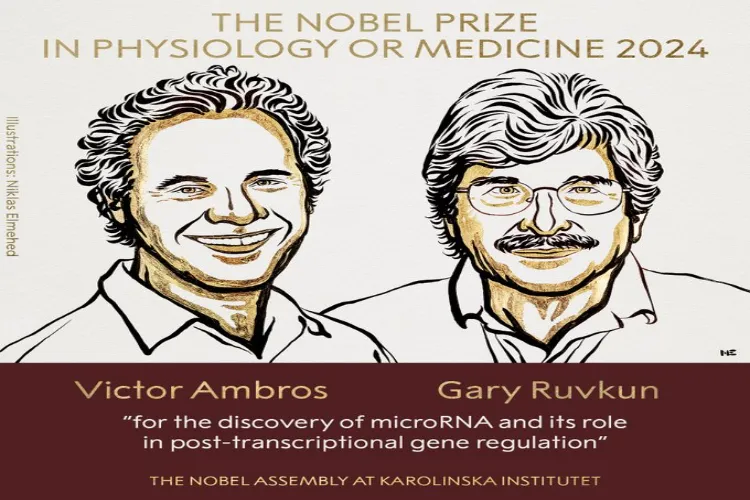Bill Gates AI is the latest innovation in artificial intelligence, reflecting the tech magnate’s keen interest in this rapidly evolving field. During a recent event at Harvard, where he promoted his memoir “Source Code,” Gates expressed both enthusiasm and trepidation about the implications of AI technology. This fascinating intersection of human ingenuity and machine learning is reminiscent of Gates’ journey from a curious child in Seattle to the founder of Microsoft, a cornerstone of modern computing history. With insights drawn from his experiences at Harvard University, Gates encourages curiosity and exploration, suggesting that the development of AI could significantly impact various sectors, including education and healthcare. As he delves into his past, Gates underscores the importance of balancing innovation with ethical considerations in his discussion about the potential of AI.
The emergence of Bill Gates AI represents a pivotal moment in the discourse surrounding digital intelligence and its influence on society. This phenomenon encapsulates Gates’ lifelong commitment to advancing technological frontiers, shaped by his rich history at Microsoft and his academic experiences. As he reflects on his early endeavors, Gates emphasizes the critical role of innovation in driving progress, particularly in areas like artificial intelligence, which he acknowledges can evoke a range of emotions from excitement to fear. His insights suggest that while AI holds the promise of transforming industries, it also demands careful scrutiny to prevent misuse. Through his memoir, Gates urges a thoughtful examination of our relationship with technology, encouraging a proactive stance on the challenges and opportunities presented by AI.
Bill Gates AI Insights: Balancing Innovation and Fear
During a recent discussion, Bill Gates shared his thoughts on the rapid advancement of artificial intelligence (AI), emphasizing both its transformative potential and the inherent risks it presents. As a pioneer in the tech industry, Gates has witnessed the evolution of technology from personal computers to AI technologies that are beginning to shape our everyday lives. His approach is both optimistic and cautious, addressing the exciting possibilities while acknowledging the ethical and practical concerns that accompany AI’s rise.
Gates elaborated on how AI can be a double-edged sword, offering solutions to pressing global challenges like healthcare, education, and agriculture. However, he pointed out that the speed at which AI is developing outpaces society’s ability to adapt adequately. He referred to his book “Source Code” as it highlights his journey through technology, making it clear that innovation must be tempered with responsibility and careful governance. This duality emphasizes the importance of fostering curiosity in young minds while ensuring that they are equipped to navigate a tech-driven world thoughtfully.
The Legacy of Microsoft: Bill Gates Reflects on Founding the Tech Giant
In his memoir “Source Code”, Bill Gates recounts the early days of Microsoft, providing a nostalgic yet critical view of how the company transformed the software landscape. Reflecting on his Harvard experience, Gates discusses the pivotal moments that led to the establishment of Microsoft in 1975. His early obsession with coding and his partnership with Paul Allen underscored the importance of collaboration in achieving remarkable innovation. Gates describes how the vision of developing user-friendly software became a mission that resonated with a global audience.
Microsoft’s ascent to becoming a powerhouse in technology, especially with the launch of applications like Word and Excel, showcases Gates’ belief in the democratization of technology. He stresses that software should empower users and enhance productivity. Through his memoir, he invites readers to appreciate how foundational experiences in childhood and education, such as mathematics at Harvard, played significant roles in nurturing his brilliant mind, ultimately leading him to revolutionize computing.
The Role of Curiosity in Bill Gates’ Success Story
Bill Gates believes that curiosity is a crucial driver behind innovation and success. His recent discussions highlight the importance of letting young individuals explore new ideas without the fear of failure. In his memoir “Source Code”, Gates emphasizes how his parents encouraged his inquisitive nature, which in turn laid the groundwork for his groundbreaking achievements in technology. He recounts stories from his childhood that illustrate how this trait helped him tackle complex problems and seek out unconventional solutions.
Moreover, Gates advocates for an educational system that fosters curiosity rather than one that solely focuses on standardized testing. He argues that allowing students to experiment and take risks can lead to more profound learning experiences. By sharing his own journey from being labeled as a ‘tough kid’ to becoming a celebrated innovator, Gates inspires the next generation to embrace their curiosity, highlighting it as a vital component in the landscape of AI technology and beyond.
Harvard University’s Influence on Bill Gates’ Career Path
Bill Gates’ time at Harvard University significantly shaped his trajectory as a tech innovator. Although he eventually left to start Microsoft, the intellectual environment of Harvard provided him with critical experiences that honed his analytical and problem-solving skills. In his memoir “Source Code”, Gates reflects on the rigorous coursework he undertook, particularly in mathematics, which sparked his interest in software development. The challenging courses and interactions with brilliant peers expanded his understanding and appreciation for the complexities of technology.
Moreover, Gates recalls the friendships he forged at Harvard, particularly with fellow students who would go on to become influential figures in their fields. These connections not only fostered an enriching peer-learning environment but also inspired him to think big. Gates credits the stimulating discussions and debates he had during his time on campus as essential to developing the visionary mindset that would later fuel Microsoft’s innovations and his philanthropic efforts.
Navigating the Challenges of Modern Technology: Gates’ Perspective
As technology continues to evolve rapidly, Bill Gates is increasingly vocal about the challenges it poses to society, especially for younger generations. During his recent campus visit, he expressed nostalgia for the earlier days of technology, where innovations like Microsoft Word were primarily seen as tools for productivity. He voiced concerns about the pervasive influence of devices in the lives of children and the importance of guiding them toward healthy usage patterns. Gates believes it is crucial for parents and educators to establish boundaries, ensuring that technology serves as a tool for empowerment rather than distraction.
Gates also mentioned the critical need for discussion surrounding the ethical implications of technology, particularly in the realm of AI. He recognizes that while AI can provide remarkable solutions, it also comes with the potential for misuse. By encouraging open dialogue on these topics, Gates aims to foster a holistic understanding of technology’s role in society. He believes that striking the right balance between innovation and responsibility is essential for nurturing a generation that can leverage technology for positive outcomes sustainably.
The Impact of Bill Gates’ Philanthropy on Education
Beyond his contributions to Microsoft, Bill Gates is known for his philanthropic initiatives aimed at improving education worldwide. His foundation’s projects often reflect his belief in the power of curiosity and accessible learning. In his memoir “Source Code”, Gates discusses the inspiration behind the annual Gates Scholarship, which supports talented students from low-income families in achieving higher education. By investing in human capital, he aims to create a ripple effect that empowers individuals to pursue their dreams.
Gates advocates for an education system that embraces technology as a means to enhance learning experiences. He believes that integrating AI technologies into classrooms can help tailor educational approaches to meet individual student needs and preferences. By sharing his experiences and insights from both his tech journey and philanthropic work, Gates hopes to ignite a renewed commitment to improving education that fosters curiosity, adaptability, and lifelong learning.
Bill Gates and the Future of Artificial Intelligence
In light of the rapid advancements in artificial intelligence, Bill Gates has emerged as a thought leader on the capabilities and implications of this technology. His reflections during public discussions reveal a blend of excitement about AI’s potential and a recognition of the challenges it poses. Gates envisions AI transforming sectors like healthcare and education, enabling better resource allocation and more effective services. Yet, he urges caution, highlighting the ethical dilemmas and societal impacts that must be carefully navigated to prevent unintended consequences.
Gates’ perspective on the future of AI stems from his own experiences in the tech industry, where he has seen firsthand how innovations can reshape the landscape of everyday life. He emphasizes the need for a collaborative approach among technologists, policymakers, and educators to guide the responsible development of AI. This collective effort aims to harness AI’s potential for good while mitigating risks that arise from its rapid proliferation.
Curiosity and Innovation: A Philosophy of Bill Gates
Curiosity has been a cornerstone of Bill Gates’ philosophy, guiding both his personal journey and his professional endeavors. In his memoir, “Source Code”, he articulately connects the dots between his childhood curiosity and the groundbreaking innovations he spearheaded at Microsoft. Gates champions the idea that fostering a spirit of inquiry among students and young innovators can lead to discoveries that change the world. This belief is not just a personal conviction; it’s reflected in the educational initiatives he supports through his philanthropic work.
Moreover, Gates argues that curiosity is crucial for adapting to the complexities of modern technology. He encourages individuals to embrace challenges and explore new ideas fearlessly. In discussions about AI and technological advancement, Gates emphasizes that questioning norms and experimenting with innovative concepts are essential for progress. By sharing his insights and experiences, he inspires a generation to pursue their curiosities, paving the way for future breakthroughs.
Contemplating the Balance of Technology in Our Lives
Bill Gates often questions the balance between technology and personal well-being, especially in the context of today’s digital age. He reflects on how tools like social media and smartphones have permeated daily life, shaping interactions and behaviors in unprecedented ways. Gates emphasizes the importance of mindful technology use, advocating for practices that prioritize mental health and meaningful connections over constant engagement with devices. He argues that technology should enhance our experiences, not dominate them.
Moreover, Gates encourages parents to take an active role in guiding children through this tech-saturated environment. Drawing from his own experiences raising three kids, he underscores the importance of establishing boundaries regarding technology use. By sharing his own family’s approach, Gates aims to instill a sense of balance in younger generations, promoting a healthier relationship with technology. Ultimately, he envisions a future where technology serves as a tool for enrichment rather than a source of distraction.
Frequently Asked Questions
What insights does Bill Gates share about AI technology in his memoir, Source Code?
In his memoir, Source Code, Bill Gates shares insightful reflections on AI technology, hinting at its transformative potential in sectors like medicine and education. He also expresses concerns about the rapid pace of AI development, acknowledging that while it can solve significant global challenges, it is ‘a little bit scary’ due to its implications on society.
How does Bill Gates’s Harvard experience relate to his views on AI technology?
Bill Gates’s time at Harvard, as described in Source Code, shaped his analytical thinking and appreciation for technology, which later influenced his perspective on AI technology. His rigorous academic journey prepared him for the challenges of building Microsoft, making him an informed advocate for responsible AI advancements.
What is Bill Gates’s vision for the future of AI technology according to his discussions at Harvard?
During his discussions at Harvard, Bill Gates articulated a vision where AI technology could alleviate issues in healthcare and education. He believes that the ‘free intelligence’ generated by AI can enhance productivity and creativity, although he also warns that its rapid advancement poses ethical and societal risks.
What experiences from Bill Gates’s early Microsoft days inform his opinions on AI technology?
Bill Gates reflects on his foundational experiences at Microsoft in Source Code, emphasizing how innovation at a fast pace became a hallmark of his career. This background informs his nuanced understanding of AI technology’s potential, as he draws parallels between early software development challenges and the current AI landscape.
In what ways does Bill Gates think AI technology could impact young people’s lives?
Bill Gates expresses mixed feelings about AI technology’s impact on young people, acknowledging its capability to offer educational benefits while also recognizing its potential to dominate their lives. He emphasizes the importance of balance, citing his efforts to protect his daughter’s interactions with technology during her formative years.
How does Bill Gates balance his concerns about AI technology with optimism for its benefits?
In Source Code, Bill Gates balances his concerns about AI technology by focusing on its potential to solve major global issues, like healthcare shortages. While he acknowledges the ‘scary’ aspects of its rapid development, he also remains optimistic that AI could serve as a powerful tool for improving human productivity and creativity.
| Key Point | Detail |
|---|---|
| Bill Gates’ Background | Gates was a precocious child; his parents encouraged his curiosity. |
| Release of ‘Source Code’ | Gates’ fifth book details his life, career, and thoughts on curiosity. |
| Impact of Mathematics | Gates faced academic challenges at Harvard that humbled him. |
| Founding Microsoft | Gates dropped out of Harvard to start Microsoft after a realization about personal computing. |
| Concerns about Technology | Gates expressed nostalgia for earlier tech optimism while acknowledging current fears. |
| AI Predictions | Gates sees AI easing shortages in various fields but acknowledges potential risks. |
Summary
Bill Gates AI reflects on a transformative journey through technology while grappling with the implications of modern advancements. In his recent talk, Gates emphasized the value of curiosity, the beauty of mathematics, and the importance of responsible development in AI technology. As AI continues to evolve, his insights offer a blend of optimism and caution, ensuring that society benefits from innovations without compromising fundamental values.





